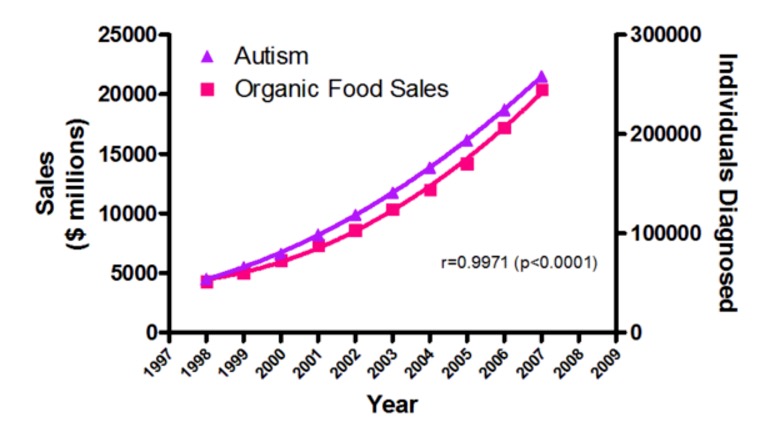News outlets really hit gold with this one. Except, it was fool's gold.
"Antidepressants linked to premature death risk"
"Warning for those on antidepressants: The commonly prescribed drugs raise the risk of an early death by 33%, controversial study finds"
"Antidepressants associated with significantly elevated risk of death, researchers find"
"Antidepressants up risk of death by 33 percent, says study"
But the researchers hit something else: rock bottom. And, in a world full of seriously crappy epidemiological studies, that's quite an enviable accomplishment. Yet, scientists at McMaster University in Hamilton, Ontario managed to publish a seriously terrible study in the journal Psychotherapy and Psychosomatics which shows that they either haven't McMastered science or have McMastered the art of getting god-awful science published. It doesn't really McMatter which is true, but they did a serious disservice to people who may really need antidepressants but will be afraid to take them because of this terrible study. It is seriously awful, and in a few minutes, you will see that the headlines are dead wrong. And, contrary to the headlines, this mindless study and the news coverage it generated will end up costing lives, not saving them.
Even a quick look at this McGarbage reveals why the neither the numbers nor the conclusions derived from them make sense. Let's start... well, it doesn't really matter where. It's all bad.
1. MEANINGLESS STATISTICS

Flaws:
- This study is a meta-analysis - a study of a combination of previous studies. Meta-analyses (1) are notoriously unreliable. The choice of which studies to include and which to exclude will influence (or more likely, determine) the conclusion.
- None of the studies in the paper are prospective, but rather, they are retrospective.
- Retrospective studies usually involve searching massive databases and looking for the difference between two variables which meet the criteria for statistical significance (p < .05).
- If you examine enough data, there will always be statistically significant findings, but many of them will be coincidences (see graph below). This is called data dredging or p-hacking. It is the lowest form of science life. Here is an example that you may have already seen:

It is impossible to find a better correlation than that between the sales of organic food and the number of diagnosed cases of autism over a 12-year interval, but, of course, it's a bunch of nonsense. Even the McScientists must know this. Yet, what they are reporting is just as bad.
- Hazard Ratio (HR) is a comparison of the risk of two variables. When the HR is high, the chances are pretty good that something real is going on. When the HR is below 2, especially in a retrospective study, the chances are that it is a meaningless number - simply a mathematical coincidence rather than anything real. An HR of 1.33 in a meta-analysis is a joke, and 1.14 is a bad joke. But that didn't stop the McAuthors from publishing this McNonsense.
But this joke isn't funny. The HR of 1.33 was the number responsible for the headlines which warned of a "33% increased risk of death in people who took antidepressants." It is not real. The 14% increase in cardiovascular events is even less real.
In case you remain unconvinced, there are plenty more flaws that render this study McMeaningless. Here are a few.
2. BIOLOGICAL IMPLAUSIBILITY

- Patients, who already have heart disease were not adversely affected by the drugs (or maybe even helped by them) while patients without heart disease were??? Nonsense - keep reading.
- Serotonin reuptake inhibitors have a very different mechanism of action from tricyclic antidepressants (ADs) yet both classes "worked" the same. It would be very unusual to see the same effect from two completely different classes of drugs.
- And this second fact is based on data that do not even come close to statistical significance (0.27). So, this isn't real either.
3. CONVOLUTED EXPLANATIONS OF NONSENSICAL DATA
They have a McExplanation for this, but it is seriously McLame :

So, we're supposed to believe that antidepressants actually help heart patients because they are blood thinners, which is why they kill people without heart disease while sparing people with it??? If so, I've got a McBridge to sell you. If antidepressants work so well for heart disease, should we use them for non-depressed heart patients? No, because they don't work for anyone (2).
4. NONSENSE RESULTS
"One study included in our meta-analysis found that AD use was associated with an increased risk of death in men but a decrease in women, whereas another study reported an increased risk of death in women using ADs, as compared with women not using ADs."
- If one study contradicts another within the same meta-analysis, it's a pretty sure bet that we are seeing statistical noise, not real trends. Common sense alone dictates this.
- This is a bit like two weather forecasts, one calling for a blizzard and the other predicting a heat wave, both in the same day.
5. POOR QUALITY STUDIES
As long as meta-analyses are pretty close to worthless anyhow, why not do one based on low-quality studies? They sure did.

This sentence alone is reason enough to flush this paper down the McToilet. They started with 837 references, threw out 821 of them, and ended up with a group of the "best" 16, 11 of which had serious flaws. Unreal.
I have only touched on some of the flaws. There are plenty more, but even this short summary is sufficient to expose this nonsense for the junk that it is.
But this 14-page atrocity is not merely another example of a harmless junk study. No - this one can kill people. Although far from perfect, antidepressants are lifesavers for many people with severe clinical depression, a very serious disease that can ruin a life or even end it. Unfortunately, this garbage study made it into the garbage news, where its erroneous conclusion - that antidepressants will kill you - will be all that people will remember, some of whom will succumb to their depression rather than seek treatment because of an unsupported fear of the drugs.
The authors of this paper should be ashamed of themselves.
Notes:
(1) According to biostatistician and American Council advisor, Dr. Stan Young: "A meta-analysis of randomized clinical trials is a reasonable proposition as the papers being combined are likely of good quality. A meta-analysis of observational studies is a terrible idea as the papers being combined are unlikely to fairly estimate the quantity at issue."
(2) The theory about cardioprotective effects of antidepressants is nothing but speculation. And also baseless. A Cochrane review makes this clear: "No beneficial effects on the reduction of mortality rates and cardiac events were found [in patients with heart disease who took antidepressants]. Overall, however, the evidence is sparse due to the low number of high-quality trials per outcome and the heterogeneity of examined populations and interventions."




